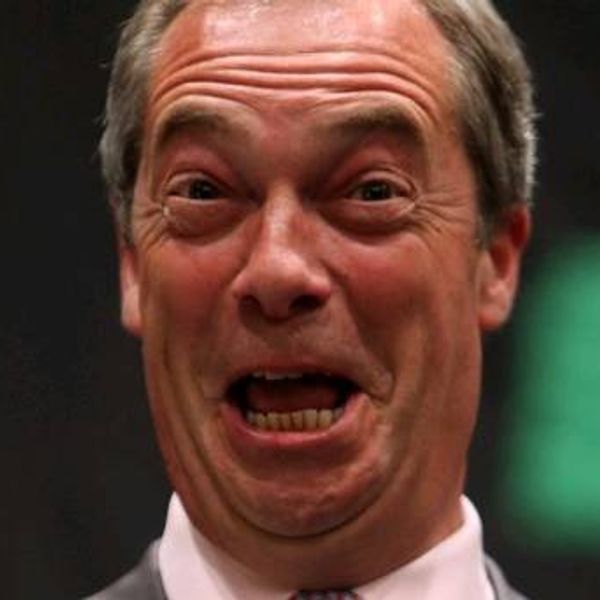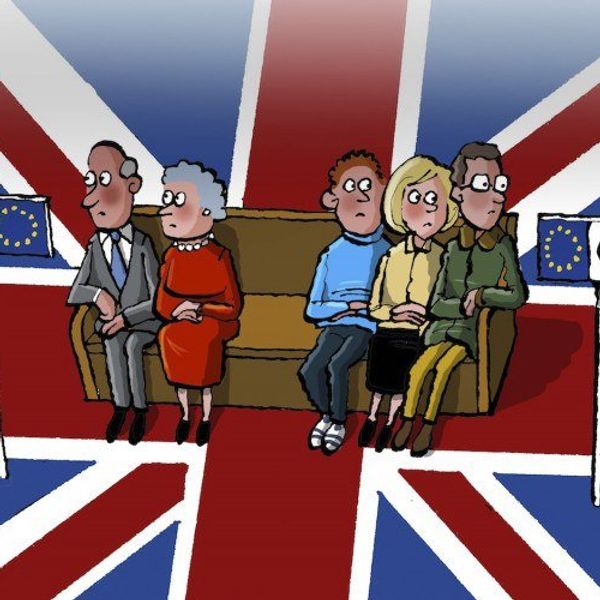On June 23rd, the United Kingdom held one of the most significant populous referendums in modern political history. After pressure from members of his own Conservative party David Cameron finally decided to leave it to the voters on whether or not the United Kingdom would remain a member of the European Union. The result? 52% to 48% in favor of leaving with voter turn-out breaking records around 72%. This may seem like a minor political exchange to many outside of Europe's borders but the lasting impact socially, politically, and economically for the entire world will make this an event discussed for at least the next 50 years.
Britons have loved to complain about EU policies and obligations for years but those complaints have finally come to fruition and the result is not going to be anything better than what they were complaining about in the first place. It reminds me of a time in history when certain Britons complaining about high taxes led to the government starting a war? Who was that with again? Oh, yeah, that was us, huh. The referendum was an effort to silence those complaining about policies just as the Revolutionary war seemed like a walk in the park to get rid of those pesky new-world folk and their tax complaints. That went well for them! It seems both events are going to change the look of the world's Geo-Political landscape for good as well as making Britain seem much less smart than they continually give themselves credit for.
According to Google, the second most searched term in the UK after the results were announced was "What is the EU" with "What does it mean to leave the EU" closely in first. This was AFTER results of the referendum were announced for those of you who missed it. It seems Britain took a page out of America's playbook by worrying about the issues after you've already voted on them. Not recommended, Britons. It hasn't worked all that great for us in the past.
Slow economic growth domestically and frustration with European policy on the free movement of people across borders pushed the vote to the surface. However, that very same vote just caused the Pound (Britain's currency) to drop in value to record lows not seen in 30 years. In fact, the Pound was actually gaining in value the night before the referendum as investors anticipated a vote to remain in the European Union. Obviously, this was not the vote investors got.
This economic hit to world markets and domestic currency was not a surprise, either. In May, the IMF put out a statement warning of how a Brexit vote could "precipitate a protracted period of heightened uncertainty, leading to financial market volatility and a hit to output." As the United State's stock market experienced, this advice may have been well taken with the Dow Jones dropping over 600 points overnight as investors became uncertain of market volatility across the world.
The IMF even predicted a 1-9% economic decline of GDP over the long term if Britain voted to leave compared to annual 2% growth with EU membership. Britain may be looking at short term economic hits along with long-term political uncertainty as they now have to deal with the negotiations of tariffs and taxes with the EU countries that currently purchase 44% of all British made goods.
The other worry that is keeping world officials up at night is that Britain's vote to leave may impact other countries causing similar referendums across Europe. If a country like Germany or France decided it, too, was going to cut ties with the EU we could see financial and political chaos for years to come.
Those pushing for a leave vote promised citizens more powerful economic gains and independent immigration policies that could restrict the free movement of people they currently experience across their borders. However, those two things go hand-in-hand with immigration policy being one of the biggest factors in determining access to the EU single market and European-immigrant labor being such a large part of British industries like farming and infrastructure. A Brexit vote didn't just magically fix both problems at once, the UK needs to make a decision on what they value more: borders or their economy. With the Bank of England announcing it is prepared to cut interest rates from their current level of 0.5% it seems a recession is well on its way for the UK.
So just as Britain got its ass kicked in 1776 it seems that a similar, this time economic, ass-kicking is looming in the distance. Looks like misleading political propaganda isn't something only us Americans have to deal with.





















